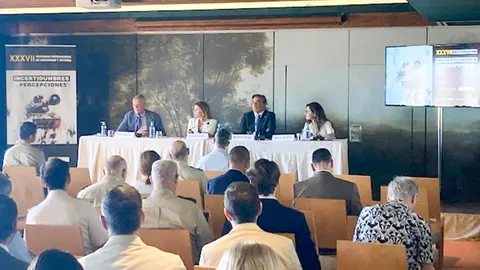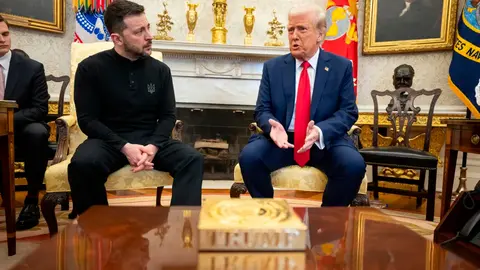The European Union renews sanctions against Russia

Every six months since 2014, due to the crisis in eastern Ukraine, the war and the violation of the Minsk peace agreements, the European Union (EU) has renewed the duration and scope of the sanctions package it imposed on Russia by unanimous decision of the 27 Member States.
Some of the sanctions imposed by the EU include restrictions on the Russian foreign market, a ban on transactions and the suspension of broadcasting licences in the EU, and the use of chemical weapons in Ukraine.
On this occasion, measures such as the freezing of more than $230 billion in assets of the Russian Central Bank have been added. Five Russian banks are affected both within and outside the EU.
Ukrainian President Volodymyr Zelensky recommended that sanctions also be imposed on oil trade, the oil fleet and Russian supply chains that contribute to the manufacture of weapons.
This also banned the sale of arms and technology that could be used for military purposes and restricted Russian presence in the oil sector.
On the other hand, Slovak Prime Minister Robert Fico vetoed a new additional package of sanctions related to gas imports. This is because his country needs gas supplies from Russia and he wanted to pressure the European Commission to guarantee them before halting all Russian gas imports by 2027. This stance goes against the general trend of sanctions against Vladimir Putin's Russia.
Minsk peace agreements
The EU's condition for lifting economic sanctions is that Russia comply fully with the Minsk agreements. This is something that Russia has not done since they were enacted.
According to the media outlet El Orden Mundial, ‘the Minsk agreements are two pacts signed in 2014 and 2015 by representatives of Ukraine, Russia, the Donetsk People's Republic (DPR) and the Luhansk People's Republic (LPR) to end the war in Donbas, in eastern Ukraine.’ At that time, the top priority was an end to hostilities between the Ukrainian army and the pro-Russian forces of the DPR and LPR.
The first was supported by the Organisation for Security and Cooperation in Europe. After the failure of the first agreement, France and Germany joined the second, together with the United Nations Security Council.
When disputes broke out between pro-Russian separatists and Ukraine, Russia took advantage of the situation to annex Crimea in 2014. Due to the escalation of the armed conflict, the Trilateral Contact Group on Ukraine, chaired by Petro Poroshenko, rushed into diplomatic negotiations to resolve the problem, leading to the Minsk peace agreements.
Although the measure is not entirely popular in Ukraine, the European Union sees the agreements as a very important solution to the conflict between the two countries.
However, Russia does not see why it should comply with the terms of these agreements, as it does not consider itself directly involved in the issue. Furthermore, it insists that the Donbas regions deserve greater autonomy and claims sovereignty over the territory.










